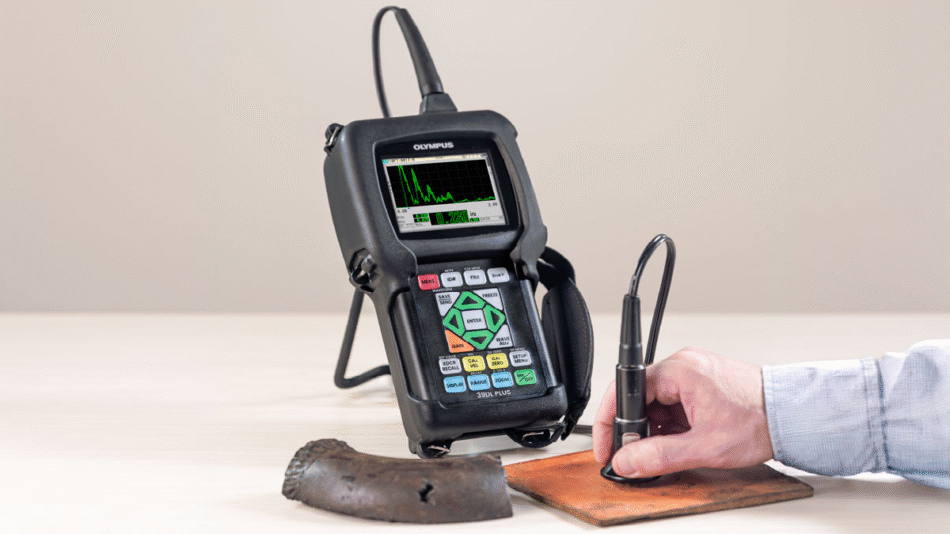Across the United States, industries like oil and gas, marine, aerospace, power generation, and infrastructure rely on precision tools to ensure safety, compliance, and operational efficiency. One such essential tool is the ultrasonic thickness gauge—a compact device that plays a big role in structural monitoring and preventive maintenance.
Among the most trusted tools in this category is the cygnus Ultrasonic Thickness Gauge, renowned for its reliability, through-coating measurement, and field-ready design. In this article, we’ll explore how ultrasonic thickness gauges work, why they are indispensable to U.S. industries, and what makes Cygnus a leader in the field.
What Is an Ultrasonic Thickness Gauge?
An ultrasonic thickness gauge is a non-destructive testing (NDT) instrument used to measure the thickness of solid materials such as metal, plastic, and composites. It provides accurate thickness readings from one accessible side of the object—making it ideal for enclosed, coated, or hard-to-reach components.
Ultrasonic thickness gauges are widely used to detect material thinning caused by corrosion, erosion, or wear—before it leads to equipment failure or safety risks.
How Does an Ultrasonic Thickness Gauge Work?
The basic working principle involves sending high-frequency sound waves into the material using a sensor called a transducer. Here’s a simplified process:
- Sound Pulse Emission: The transducer sends an ultrasonic pulse through the material.
- Wave Travel and Reflection: The pulse travels through the material and reflects off the far (back) wall.
- Echo Reception: The transducer receives the returning echo.
- Time Measurement: The device calculates the time taken for the pulse to travel to the back wall and return.
- Thickness Calculation: Using the known speed of sound in the material, the device computes the wall thickness.
This method allows engineers to inspect internal damage or wall thinning without dismantling or damaging the component.
Why Ultrasonic Thickness Gauges Matter in U.S. Industry
1. Infrastructure and Bridge Inspections
In the U.S., much of the nation’s infrastructure is aging. Highways, bridges, and support structures must be regularly inspected to ensure public safety. Ultrasonic thickness gauges allow inspectors to detect steel corrosion in bridge beams or support columns without removing protective coatings.
2. Oil & Gas Pipeline Maintenance
The U.S. is home to over 2.6 million miles of pipelines. Corrosion in these systems can lead to catastrophic failures. With ultrasonic gauges, pipeline operators can perform regular inspections without shutting down operations, measuring wall loss even through paint or surface rust.
3. Marine and Shipbuilding
American shipyards and port authorities rely on ultrasonic thickness gauges to assess ship hulls, bulkheads, and fuel tanks—critical in extending vessel life and complying with U.S. Coast Guard regulations.
4. Power Generation and Utilities
In nuclear, coal, and renewable energy sectors, ultrasonic gauges are used to monitor boiler tubes, pressure vessels, and turbine casings. Any degradation in wall thickness can compromise plant safety and efficiency.
5. Manufacturing and Aerospace
Precision is key in U.S. manufacturing. Ultrasonic thickness gauges help ensure uniform material thickness in components, from automotive parts to aerospace structures, improving quality control and compliance with strict industry standards.
Key Benefits of cygnus Ultrasonic Thickness Gauge
cygnus Ultrasonic Thickness Gauges are designed to meet the high demands of industrial applications. Some standout benefits include:
- Multi-Echo Technology: Provides accurate readings even on painted or corroded surfaces by using multiple echoes to verify results.
- Through-Coating Measurement: Eliminates the need to strip coatings or paint, saving time during inspections.
- Rugged and Waterproof Design: Built for the toughest environments—from offshore oil platforms to construction sites.
- User-Friendly Interface: Intuitive controls and a clear digital display make it ideal for both new and experienced inspectors.
- Data Logging and Connectivity: Many models come with onboard memory, USB export, and Bluetooth for easy data management.
These features are especially relevant for U.S. industries where safety, compliance, and inspection efficiency are mission-critical.
Choosing the Right Gauge: Trust in Cygnus Instruments
When selecting ultrasonic testing tools, equipment reliability and accuracy are paramount. Cygnus Instruments, as a manufacturer and supplier, has earned a global reputation for producing industry-leading ultrasonic thickness gauges trusted by engineers, inspectors, and maintenance professionals in the United States and beyond.
With decades of expertise and a commitment to innovation, Cygnus continues to support American industries in maintaining infrastructure, managing assets, and preventing failures—all while meeting regulatory requirements and inspection standards.
Final Thoughts
As U.S. industries face increasing demands for safety, efficiency, and regulatory compliance, tools like the cygnus Ultrasonic Thickness Gauge have become indispensable. Whether you’re inspecting a bridge in New York, a pipeline in Texas, or a ship in California, having a reliable ultrasonic gauge ensures you can detect issues early, avoid costly repairs, and keep operations running smoothly.
For engineers, inspectors, and maintenance professionals across the country, investing in quality ultrasonic thickness testing equipment isn’t just smart—it’s essential.








